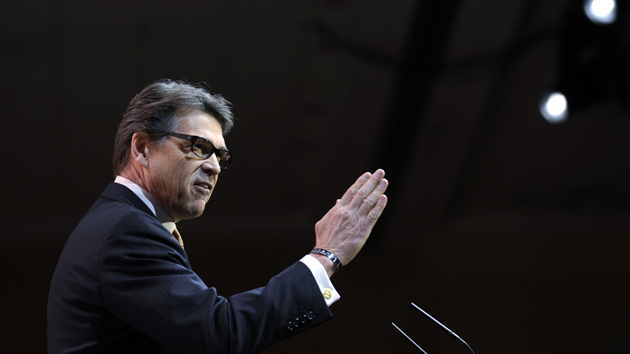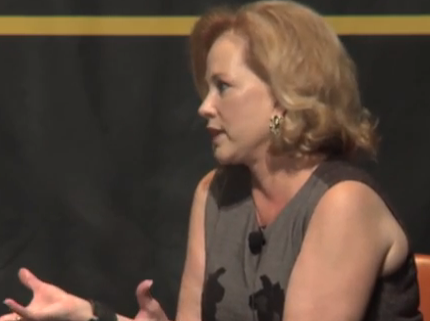Simon Maloy finds five pundits arguing that last week’s indictment of Rick Perry was flimsy and obviously politically motivated:
Who are these five pundits downplaying the case against Texas’ Republican governor? In order: New York magazine’s Jonathan Chait, MSNBC host Ari Melber, political scientist and American Prospect contributor Scott Lemieux, the Center for American Progress’ Ian Millhiser,
and the New Republic’s Alec MacGillis. Five guys who work/write for big-name liberal publications or organizations. This, friends, is the Hack Gap in action.
Ah yes, the hack gap. Where would we be without it? For the most part, it doesn’t show up on the policy side, where liberals and conservatives both feature a range of thinkers who bicker internally over lots of things. It mostly shows up on the process side. Is the legal reasoning on subject X sound? Is it appropriate to attack candidate Y in a particular way? Is program Z working well or poorly? How unanimously should we pretend that a mediocre speech/poll/debate performance is really a world-historical victory for our guy?
Both sides have hacks who are willing to take their party’s side on these things no matter how ridiculous their arguments are. But Republicans sure have a lot more of them. We’ve seen this most recently with Obamacare. Obviously liberals have been more positive in their assessments of how it’s doing, but they’ve also been perfectly willing to acknowledge its problems, ranging from the website rollout debacle to the problems of narrow networks to the reality of rate shock for at least some buyers. Conservatives, conversely, have been all but unanimous in their insistence that every single aspect of the program is a flat-out failure. Even as Obamacare’s initial problems were fixed and it became clear that, in fact, the program was working reasonably well, conservatives never changed their tune. They barely even acknowledged the good news, and when they did it was only to set up lengthy explanations of why it could be safely ignored. To this day, virtually no conservative pundits have made any concessions to reality. Obamacare is a failure on every possible front, and that’s that.
Liberals just don’t have quite this level of hackish discipline. Even on a subject as near and dear to the Democratic heart as Social Security, you could find some liberals who supported a version of privatization back when George Bush was hawking the idea in 2005. It’s pretty hard to imagine any conservatives doing the opposite.
Is this changing? Are liberals starting to close the gap? Possibly. The liberal narrative on events in Ferguson has stayed pretty firm even as bits and pieces of contradictory evidence have surfaced along the way. The fact that Michael Brown had robbed a convenience store; that he wasn’t running away when he was shot; and that a lighter policing touch didn’t stop the looting and violence—none of those things have changed the liberal storyline much. And maybe they shouldn’t, since they don’t really affect the deeper issues. A cop still pumped six rounds into an unarmed teenager; the militarized response to the subsequent protests remains disgraceful; and the obvious fear of Ferguson’s black community toward its white police force is palpable. Maybe it’s best to keep the focus there, where it belongs.
Still, a bit of honest acknowledgment that the story has taken a few confusing turns wouldn’t hurt. Just as having a few liberal voices defending Rick Perry doesn’t hurt. Keep it honest, folks.
POSTSCRIPT: And what do I think of the Perry indictment? I’m not sure. When I first saw the headlines on Friday I was shocked, but then I read the stories and realized this was all about something Perry had done very publicly. That seemed like a bit of a yawner, and it was getting late, so I just skipped commenting on it. By Monday, it hardly seemed worth rehashing, especially since I didn’t have a very good sense of the law involved.
So….I still don’t know. The special prosecutor who brought the indictment seems like a fairly straight shooter, so there might be something there. Overall, though, I guess it mostly seems like a pretty political use of prosecutorial power.









